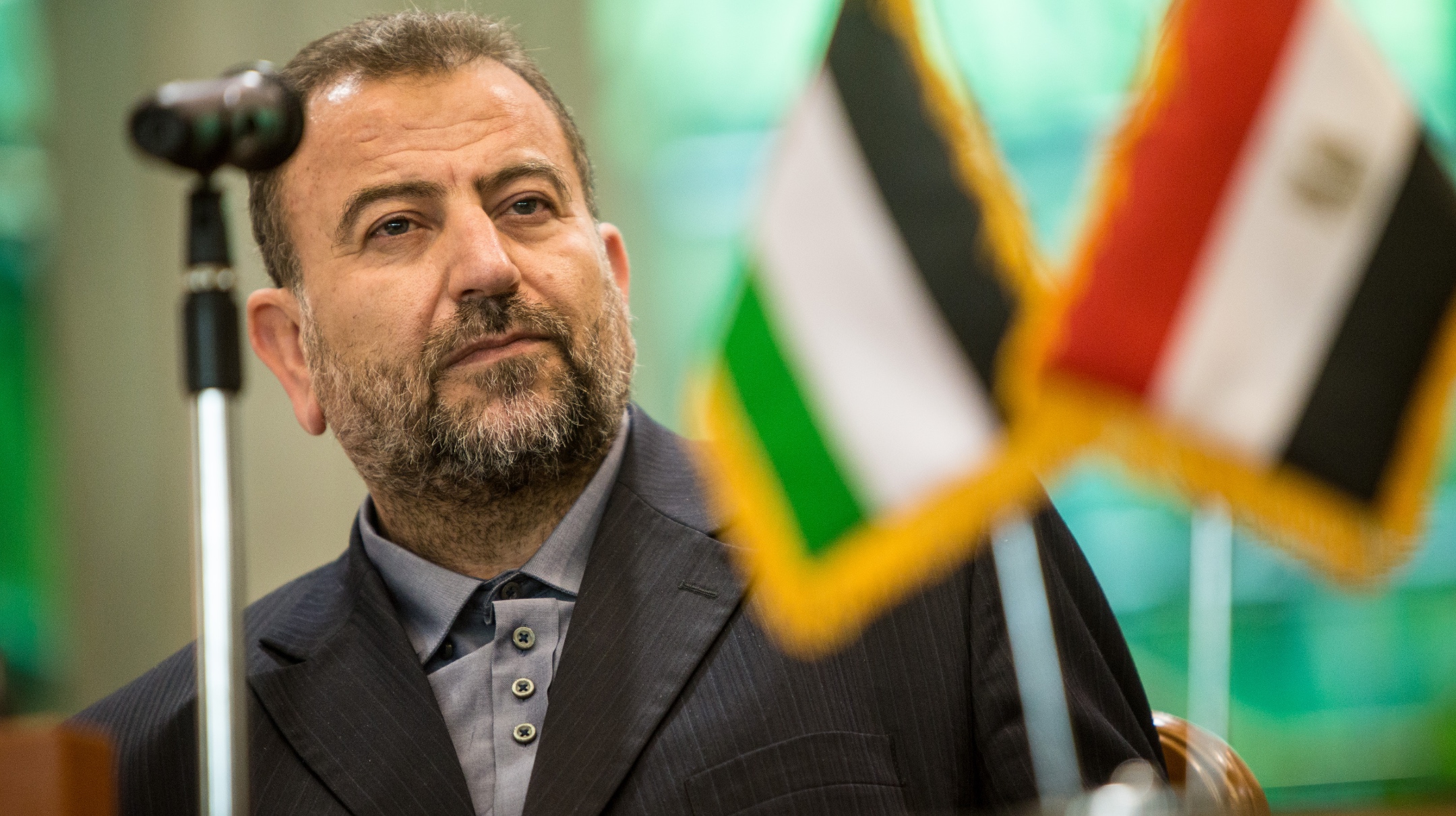Top Hamas official assassinated in Beirut, reportedly by Israel
Saleh Al-Arouri, the deputy chair of Hamas’ political bureau, was released from Israeli prison in 2010 and took up a role leading the group from abroad

Hamas’s new deputy leader Salah al-Aruri is pictured during the signing of a reconciliation deal between the Islamic Resistence Movement (Hamas) and Fatah in Cairo, Oct. 12, 2017. Photo by Ibrahim Ezzat/NurPhoto via Getty Images
(JTA) — A top Hamas leader was killed in Beirut along with two other leaders of the terror group, as tensions on the Israel-Lebanon border have continued to escalate.
Saleh Al-Arouri, Hamas’ deputy leader, was killed Tuesday in an attack in the Lebanese capital. He was believed to be an architect of Hamas’ Oct. 7 attack on Israel, and was responsible for the group’s expansion in the West Bank, including its attacks there.
Multiple sources have attributed the blast to Israel, which has yet to officially comment on the incident. A senior American defense official told the Washington Post that Israel was responsible, and Danny Danon, an Israeli lawmaker from the governing Likud Party, wrote on X that Israel conducted the attack.
“I congratulate the Israel Defense Forces, the Shin Bet [internal security service], the Mossad and the security services on the taking out of senior Hamas official Saleh Al-Arouri in Beirut,” he said on the platform formerly known as Twitter. “Whoever was involved in the Oct. 7 massacre should know that we will get them and settle scores.
Bezalel Smotrich, Israel’s Finance minister, wrote a post saying “All your enemies will perish, Israel.”
Al-Arouri, the deputy chair of Hamas’ political bureau, was released from Israeli prison in 2010 and took up a role leading the group from abroad. In addition to his focus on the West Bank, he fostered ties between Hamas and Hezbollah, the Lebanese terror group that has been fighting with Israel on its northern border following the Oct. 7 attack. Hezbollah is expected to fire missiles at Israel in retaliation for the assassination.
Tensions on Israel’s northern border have intensified in recent weeks, with increasing direct engagement between Israeli and Hezbollah forces. More than 100 people have been killed in the clashes on Israel’s northern border, and Israelis are bracing themselves for a broader war on that front as the Israeli military focuses its attention on Gaza. A poll this week by the Israel Democracy Institute found that about half of Israelis support escalating the campaign against Hezbollah.
Following the Oct. 7 attack, in which Hamas terrorists killed 1,200 people, largely civilians, Al-Arouri emerged as a top spokesman for the operation, telling Al Jazeera, “This is not a [hit-and-run] operation; we started an all-out battle. We expect fighting to continue and the fighting front to expand. We have one prime target: our freedom and the freedom of our holy sites,”
The subsequent war in Gaza has been all consuming, killing some 22,000 people, including thousands of children, according to the Hamas-run Gaza Health Ministry. The number does not distinguish between civilians and combatants. Israel says a third of those slain have been combatants.
This article originally appeared on JTA.org.

















